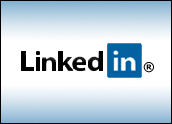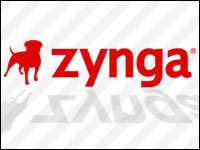
It’s no secret that nearly everyone is on Facebook. So, it shouldn’t be a surprise that corporate recruiters are starting to infiltrate the world’s largest social network in search of potential new hires.
It makes sense for corporate headhunters to set up shop on Facebook for numerous reasons, starting with the sheer number of people who are present on the platform. There also are a number of reasons Facebook members who think they might find themselves looking for a job any time in the future should be concerned about this development.
First, let’s talk about what recruiters may or may not be doing on Facebook. Companies are starting to use their own Facebook pages to post job openings free of charge, according to a recent report in The Wall Street Journal, rather than pay the several hundred dollars it might cost to list a single opening on a regular job site like Monster.com.
So far, only a few companies are employing this strategy, accounting for less than 1 percent of total corporate hiring, according to Job2Web, a firm that specializes in using Web technology in the recruitment process.
If the trend continues, however, Job2Web notes that it won’t be long before Facebook becomes a threat to online job boards as well as to LinkedIn, which currently is the premier site for professional networking.
Monster and LinkedIn Respond
Recognizing that possibility, Monster.com recently launched a Facebook app and is preparing a campaign for companies to offer employees cash rewards for using the app to refer candidates. A few independent software developers have recently released recruitment apps for Facebook as well.
LinkedIn’s response to Facebook encroaching on its territory has been to simply note that its user base — which totals roughly 100 million in comparison to Facebook’s 750 million — prefers to maintain separate personal and professional networks.
I understand that sentiment. It’s why I can be found on LinkedIn, but not on Facebook. However, I’m starting to wonder — especially if corporate recruiters ultimately come to favor Facebook over LinkedIn — if we’re quickly approaching the day when it will be impossible to maintain distinct professional and personal personas.
When I first heard recruiters were combing Facebook in search of new talent, I questioned the logic behind that strategy. As I explored further, however, it began to make more sense.
While LinkedIn is widely recognized as the premier social network for professionals, it hasn’t inspired the type of emotional connection that users seem to have with Facebook.
Facebook’s Allure
Facebook users tend to check their sites every day — in fact, many of them do so several times a day. LinkedIn users typically can go weeks without checking the site, and when they do so, it’s generally a quick look, while Facebook users tend to linger a while.
LinkedIn has taken steps to improve its stickiness. It sends users emails when someone in their network updates a profile, and it’s added news feeds in an attempt to grab users’ interest when they log in. But lacking an attraction like “FarmVille” — or just the general feeling that this is a place for hanging out with friends — LinkedIn will probably never match Facebook’s traffic patterns.
The social nature of Facebook contributes to another aspect recruiters like about the site, according to The Wall Street Journal. Several recruiters told the paper that they like having access to detailed resume information available on LinkedIn, but they have found that job candidates tend to place more value on a referral that reaches them through a Facebook connection.
Friends vs. Colleagues
That’s probably because most people view the members of their Facebook networks as personal friends — people they can trust to tell them the real story behind a job, a company or a potential boss. Meanwhile, their LinkedIn networks are filled with people they know primarily — if not exclusively — from work or business settings. These relationships have always been somewhat arm’s length. So, they may wonder if a job tip coming from this network will include everything they need to know to make an informed decision.
I understand the inclination to place more trust in someone you consider a friend than you would a mere colleague. But this entire situation, for me at least, deepens my resolve to maintain separate personal and professional online personas.
In reality, I only have a professional online persona, and there’s a good reason for that. By keeping my private life private — which means out of cyberspace — I have at least the hope of controlling what parts of the life may leak over into the professional realm and possibly cost me a business opportunity.
Guilt by Association
Once you create a personal online profile via a site like Facebook and start connecting with other people, your name, picture and your comments can make their way around the world in the click of a mouse. You also raise your chances of being a victim of guilt by association.
Even if you’ve never put anything that could be considered remotely irresponsible on your on Facebook page, a recruiter could spot some offensive material on the site of someone you’re connected to and hold that against you.
A recent incident in my own life made me acutely aware of this possibility. I mentioned to a friend — in a face-to-face conversation — that I was trying to secure work from a place where he was previously employed. “Good luck,” he said, before telling me not to mention his name to the person who would make the final decision on my bid. “We had a few differences of opinion, and any association with me might not be good for you in this case.”
The Value of Privacy
Since this was a private, real-world conversation, I was able to keep his name out of my negotiations and win the job.
Had I been linked to this friend on Facebook, the potential employer might have discovered the connection and eliminated me from consideration.
Would that have been fair? No. But it certainly could have happened, which is why I would advise job seekers to avoid Facebook — no matter how many corporate recruiters may be lurking there.
If you simply have to do social networking, try Google+. It gives you a better chance of maintaining a firewall between your personal and professional lives.












































Social Media
See all Social Media